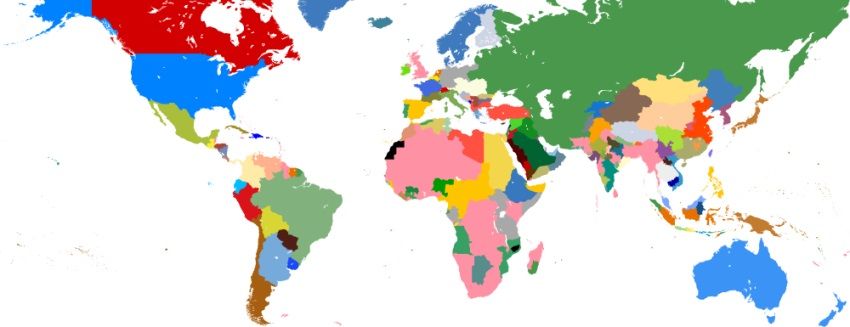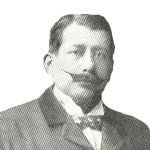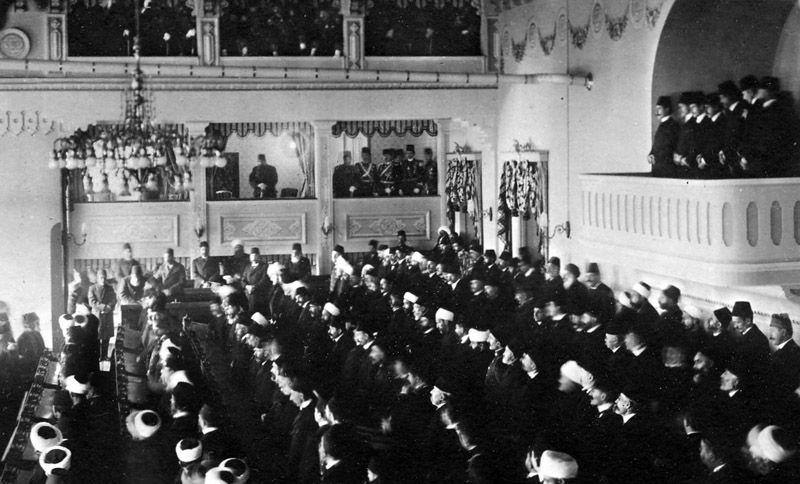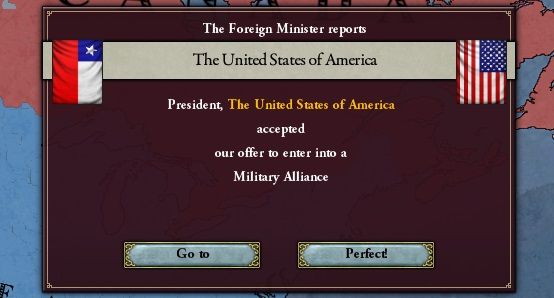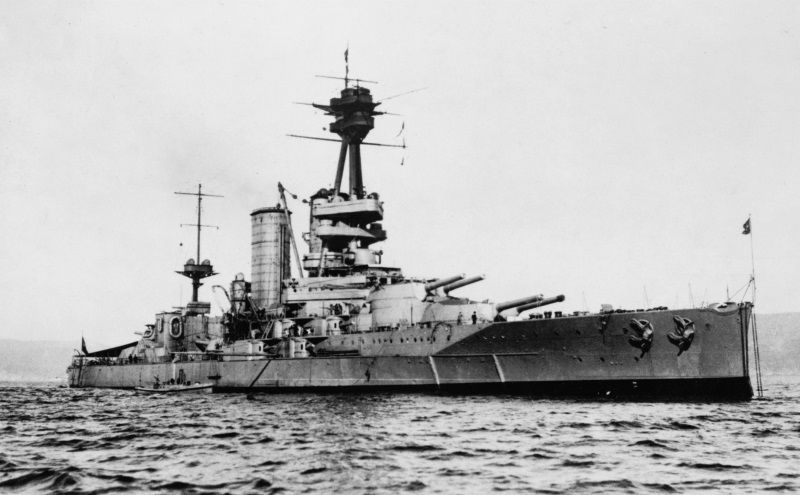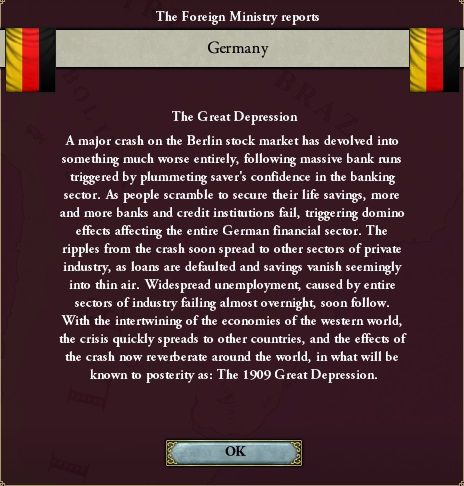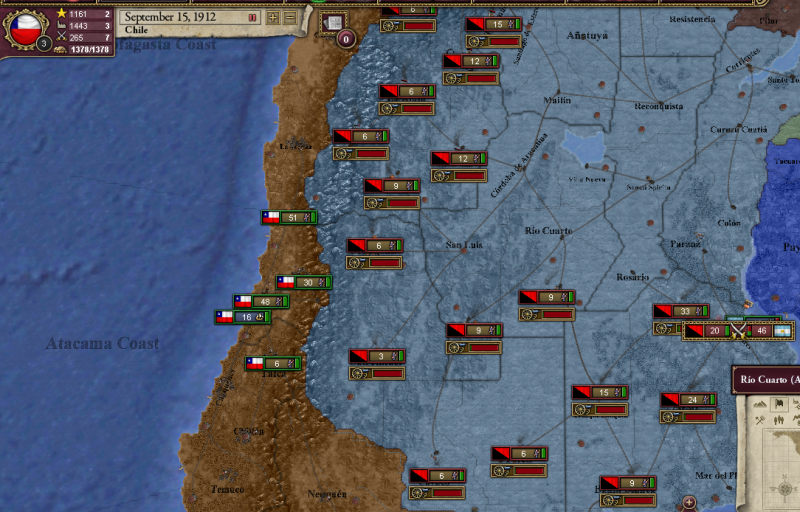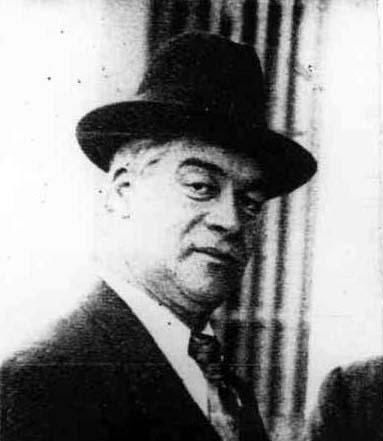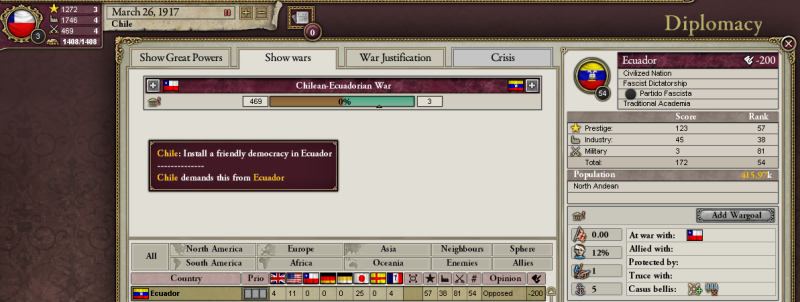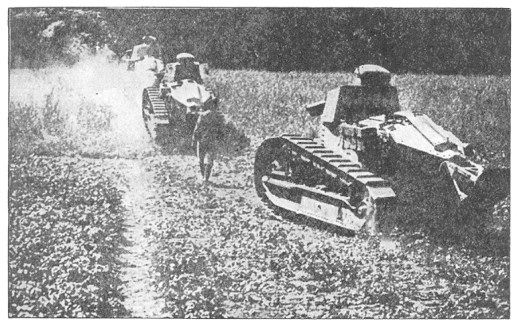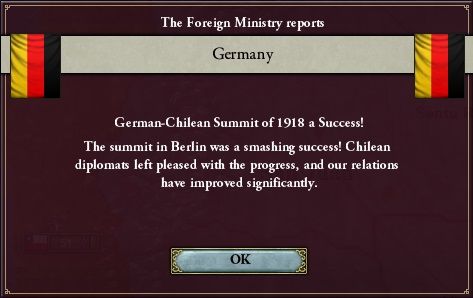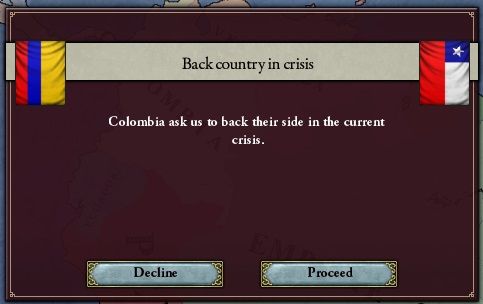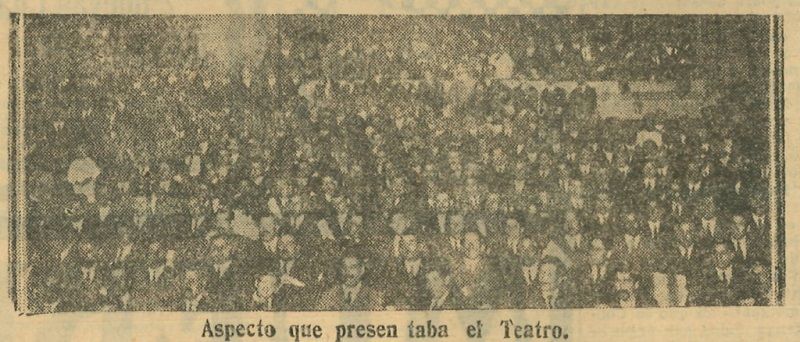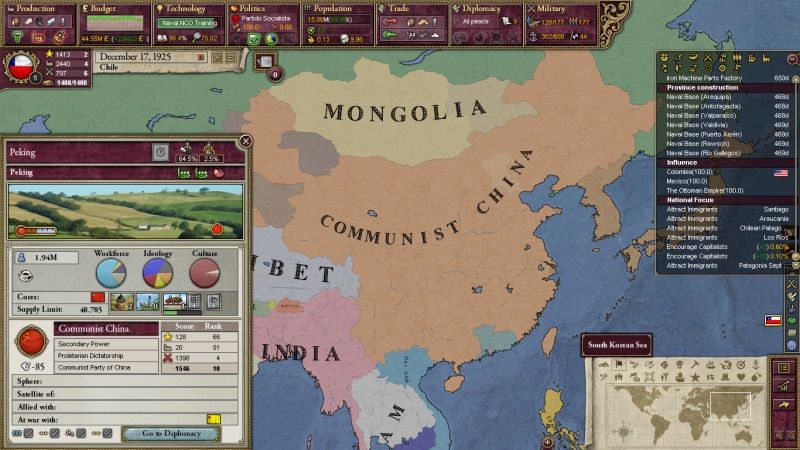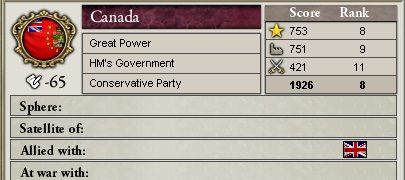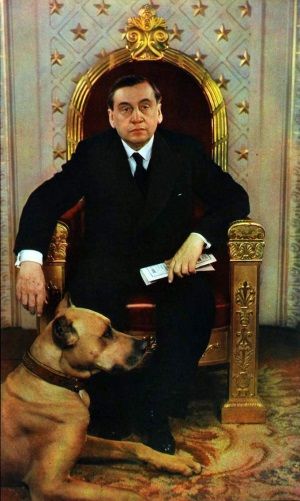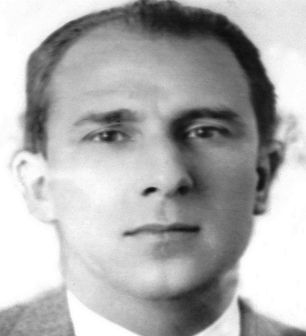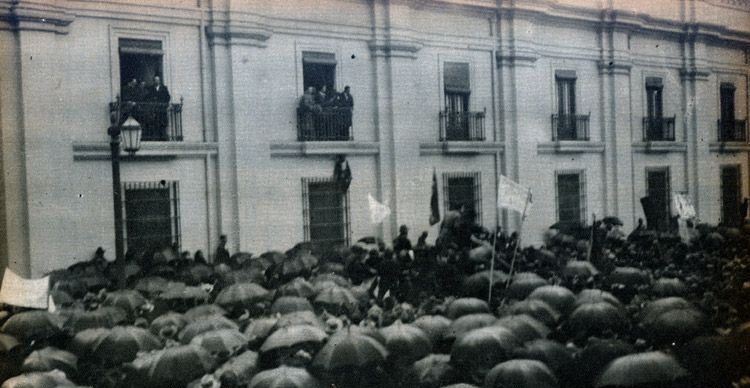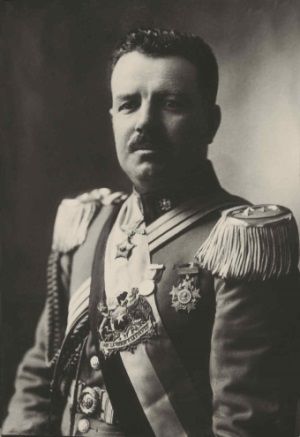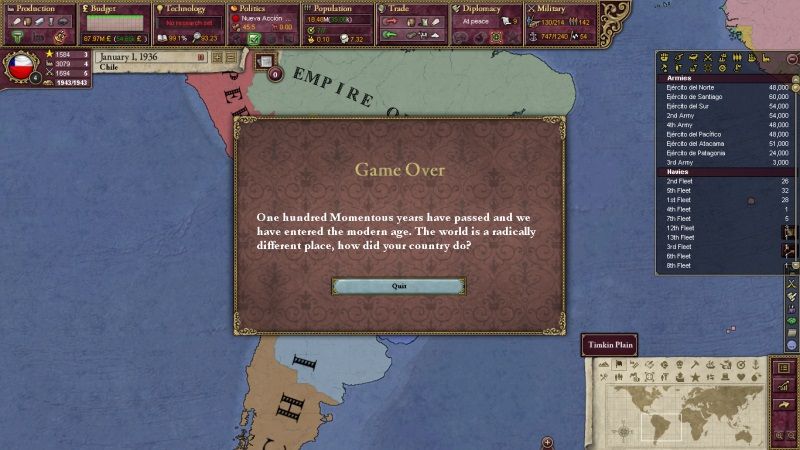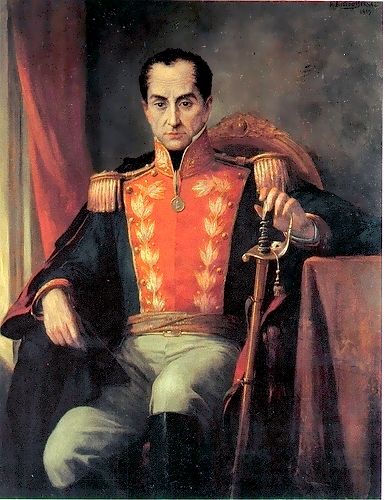Chapter X - The New Direction
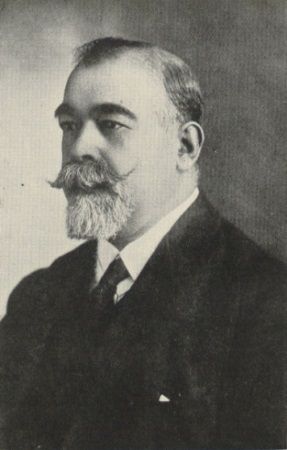 Seems to be a trustworthy sorta guy with that awesome 19th century facial hair
Seems to be a trustworthy sorta guy with that awesome 19th century facial hair
President Concha's first task was to placate the people's rage and calm the public down. He gave a grand speech promising massive reforms, massive changes, a complete transformation of Chilean society under the Socialist Party's watch. Under his authority, the massive potential of the Chilean nation would be unleashed, and the people would prosper from it. And not just Chileans, but everyone in Chile, be they Aimara, Mapuche, European or Asian immigrants, anyone and everyone in Chile would prosper. The nation embraced a new ideal of Unity in this time, and with this came the end of Chilenization programs in Patagonia and the former Peruvian lands. A major source of public anger and civil strife, the Chilenization campaign was missed by few.
President Concha was aware of his precarious position between a populace unsure of what to expect out of him and a political party that would rather have chosen someone else besides a moderate like him. As such, he delegated most of his power to his ministers, as well as to the Socialists in the National Congress to make the most out of his position.
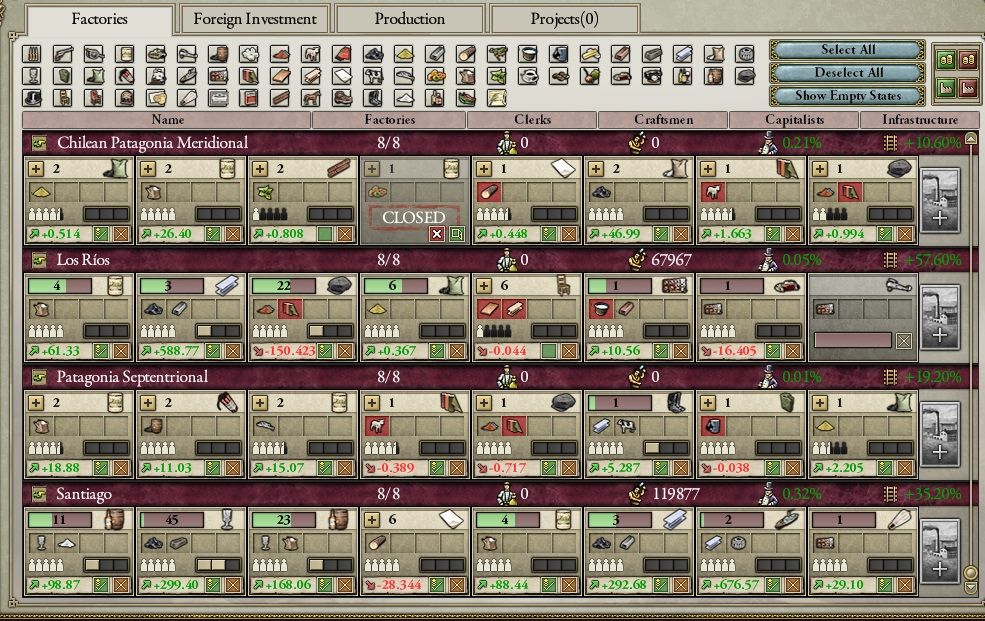
Indeed, President Concha's approach to this led to his success and popularity, as he promoted a grand economic reform that would make the most out of Chile's natural resources while developing new modern industries. Capitalists running unprofitable and non-strategic factories were forbidden government assistance in staying open, and the workers were put to work elsewhere. [1] State resources were to be used to expand and assist the new corporations in their growth.
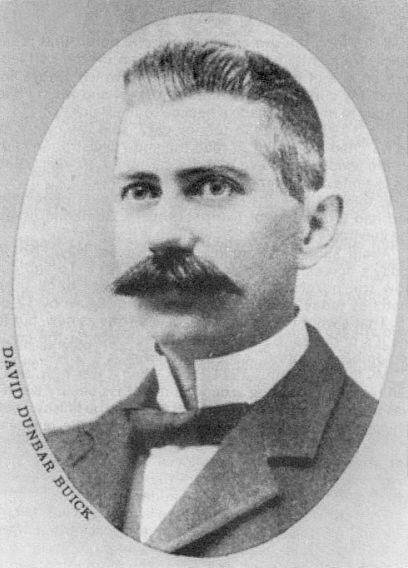 With a mustache like that, he'll be winning Chilean elections in no time!
With a mustache like that, he'll be winning Chilean elections in no time!
Many interesting industries were launched under this program:
*Automotive industry was a key goal for Chilean economists. With the raw materials of South America under Chile and her allies' control, Chile hoped to exploit this new industry. The key player in this was Scottish-Chilean immigrant David Dunbar Buick, whose automotive inventions proved extremely important in developing the Chilean auto industry in the Bío Bío Region. Later on, the Swiss-Chilean Louis Chevrolet would found the incredibly successful Chevrolet company. Both Buick and Chevrolet would become household names in the auto industry. [2]
*Consumer electronics -- Phones, radios, telegraphs, and other modern gadgets were produced in Chile for the first time under the term of President Concha. Using startup funds from the government, Chilean industry was able to make a dent in the worldwide market for these goods. Chilean electrical parts were also extremely important globally.
*Aircraft - While many corporations wished to create their own aircraft, the Chilean government, under advice from the Chilean Army to consider the potentials of aviation, chose to create a national corporation called the Fábrica Chile de Aviones (FCdeA). FCdeA was to grow into a major corporation in its own time. [3]
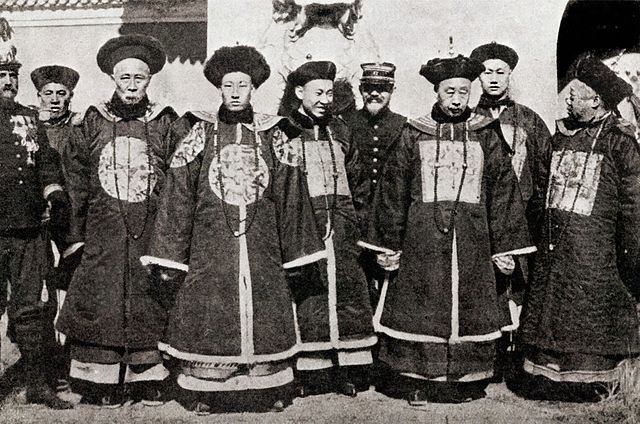
(The Guangxu Emperor and his officials. Chilean officials can be seen in the background)
But in order to produce all these goods and revitalise Chilean industry, a steady supply of resources needed to be obtained. As such, the Chilean government continued the funding of resource exploration in South America and Mexico and building infrastructure to find and access these goods. But most important was a trade deal concluded with the Chinese government granting Chile much of China's wealth in lead. Newly westernised and ready to compete and collaborate with the West, the Chinese government was to profit immensely from Chile importing their lead. This ended the frequent shortages of lead the Chilean industry suffered from, as well as improved supply for coal and other key goods. [4]
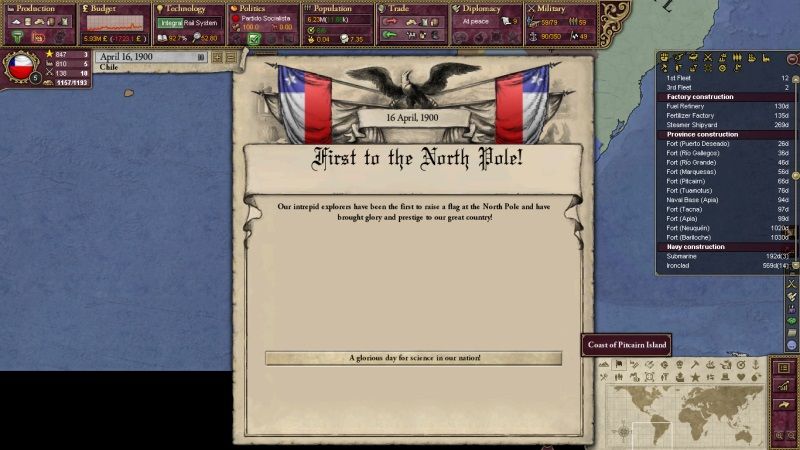 Naturally, Santa's workshop became a key part of Chilean industry
Naturally, Santa's workshop became a key part of Chilean industry
The desire for global prestige for Chile unified politicians across the political spectrum. Naturally the Concha administration sought this as well, and in addition to various artistic pursuits, the Chilean government also funded expeditions to the North Pole. As strange as it may sound for the southernmost country in the world to be funding exploration of the north pole, the Chilean government nonetheless devoted a healthy amount of funding for this task. Key in the exploration was German-Chilean immigrant Hans Steffen, who led the Chilean team to explore the north. While he failed once, Steffen came back and conclusively reached the North Pole in April of 1900, snubbing nations like Norway and Denmark who had dreamed of reaching the furthest north since the Viking Age.
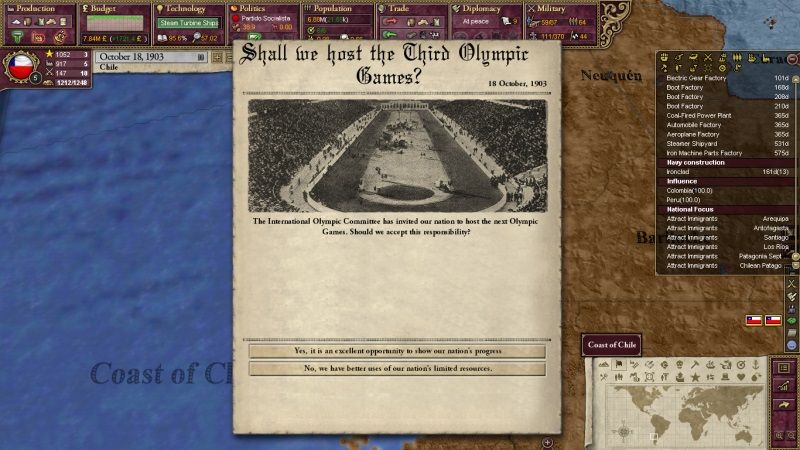 But if they hosted the Olympics in Chile in June or July, wouldn't it be the Winter Olympics?
But if they hosted the Olympics in Chile in June or July, wouldn't it be the Winter Olympics?
National prestige was the name of game, and hosting a celebration of the world's greatest athletes was a sure way to improve it. The 1904 Summer Olympics held in Valparaiso was a noteworthy event in the city's history. As with many of the early Olympiads, local athletes tended to dominate the events, with Chile sending the majority of competitors. Some Frenchmen and Englishmen would later complain that if the Games had been held in Europe, they would've wiped the floor with the Chileans.
In the social field, things were also getting better. Chronic poverty was a problem in Chile for decades and still was during the administration of President Concha. The poor truly were poor, with factory owners allowed to pay them as much or as little as they wanted to, and naturally the latter was much more common. But with the support of the National Congress, key social reforms were passed, such as a minimum wage, pensions, and a permanant end to child labour. This had the effect of reducing poverty in Chile, and with it a decrease in malnutrition and other easily preventable conditions.
Other important accomplishments of the Concha presidency include the expansion of voting franchise to everyone, regardless of race or gender. In 1904, a new law granted everyone universal suffrage. Chile was thus one of the first nations to grant women the right to vote.
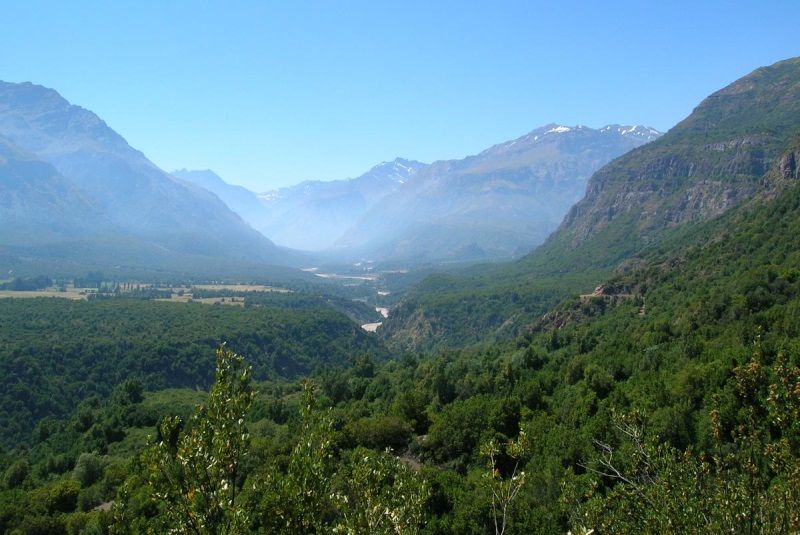 Truly beautiful...
Truly beautiful...
Chile's population had swelled to over 25 million during the term of President Concha after a major population boom under Presidents Baquedano and Montt, and the nation was on pace to surpass Spain in becoming the most populous Spanish-speaking nation. With liberalisation of the immigration laws (despite President Concha's personal disapproval), Chile passed the United States in immigrants per month for the first time since the La Serena silver rush and the early days of the nitrate boom. With this came an increasingly crowded country and thus more pollution. President Concha made the first attempts to preseve Chile's rich natural environment by passing anti-pollution laws that also had the side-effect of benefiting consumers. President Concha also passed laws protecting the rights of minorities in Chile, such as the dozens of American Indian and Polynesian groups, and sponsered anthropological surveys to research their culture.
In the elections of 1903, the other parties attempted their hardest to oust the Socialists despite this impressive progress. The Liberals ran Pedro Montt, politician and cousin of President Jorge Montt and son of President Manuel Montt, the Conservatives tried Senator Fernando Lazcano Echaurren. Despite some liberal success early on, neither of these candidates could defeat President Concha, who had proved himself to be extremely popular amongst the people despite the large unemployment his economic reorganisation process was causing as a side-effect of improving Chilean economic strength. He was able to divert much of the blame on some of the capitalists and liberal economists who were assisting the process, ruining the Alianza Liberal's chance of victory.
Chile had her own problems, she was a veritable island of stability compared to much of the world. In China, rage against the Qing Empire's westernising policies led to the overthrow of the Qing Dynasty and a republic proclaimed. Chile's old friend, the Guangxu Emperor, was kept under house arrest by President Yuan Shikai to prevent monarchists from restoring the Qing dynasty. But the Chinese Republic broke down just as quickly as it started with the beginnings of the Warlord Era, with many regional warlords operating their territories as near-independent states in a state of civil war and rebellion against the central government in Beijing. President Yuan and most of the warlords did keep the Chilean trade deals, and it was said the Chilean government was a key sponser of the Chinese Civil War and the Chinese warlords.
 Or maybe just the final epic battle between France and England
Or maybe just the final epic battle between France and England
The Great War broke out in late 1903 throughout Europe. Historic alliances and rivalries mattered not in the face of this brutal conflict. France, Austria-Hungary, The Ottoman Empire, and Romania fought on one side, something that would considered preposterous a century ago. Against them was Great Britain, Germany, Italy, and Belgium, along with the British Raj, Egypt, Canada, Portugal, Sweden, Denmark, and Puerto Rico. Despite the overwhelming strength of Britain and her allies, they were unable to project their power well in the conflict at first, but as the war went on, this changed, and by 1906 France and Austria were clearly on the losing side, especially after the Turks and Romanians negotiated a separate peace. In the 1906 Treaty of Paris, the French were forced to give up their colonial empire to Britain and Germany and suffered the division of their nation as the southern half of France became the independent nation of Occitania, although it's affairs were dominated by Germany.
Though Chile stayed completely neutral, they suffered from negative effects of the war as well. During the war, the Chilean economy went into a recession due to the huge drop in demand for many of the goods that Chilean industry produced and a decrease in the world copper price. President Concha could certainly breath a sigh of relief when the war ended.
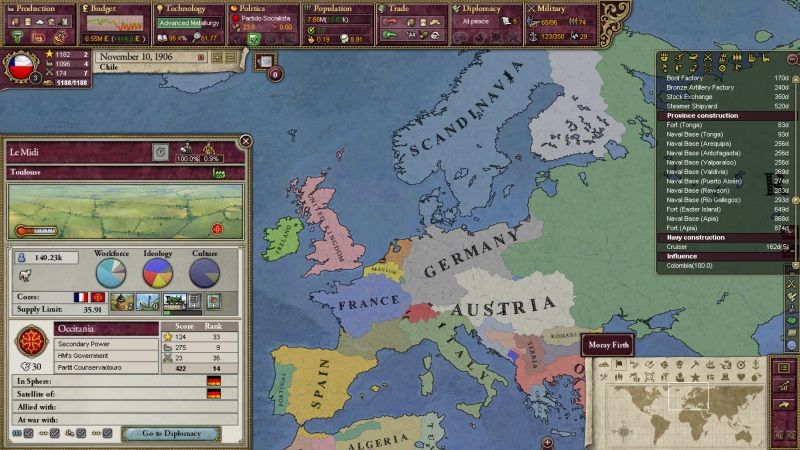 This isn't the Europe I remember!
This isn't the Europe I remember!
The aftermath of the Great War was extremely bloody as well. Austria-Hungary stayed largely intact, unlike France, but mass rebellions broke out in 1906, and by August the government had collapsed, with Emperor Franz Joseph I fleeing the country as Austrian Fascists seized control of the nation. Croatia and other Balkan states under Austria's control were granted limited self-government. In France itself, the Second Empire's Napoleon V was extensively challenged by mass protests, but the Bonapartists managed to keep the monarchy on the throne for over a year until their overthrow in 1907. Even the victors suffered. In Britain, the issue of Irish independence led to the formation of the Irish Republican Army, who declared a war on the United Kingdom for Irish independence. While the IRA was defeated in the war, Ireland would never be ruled by Britain again as the UK created a puppet state in Ireland to rule the land in their place. [5] In Scandinavia, the growing prestige of the Norwegian state led to the proclamation of a new Kalmar Union to govern one nation. Prince Carl of Denmark, now Haakon VII of Norway, would rule Scandinavia as king. [6]
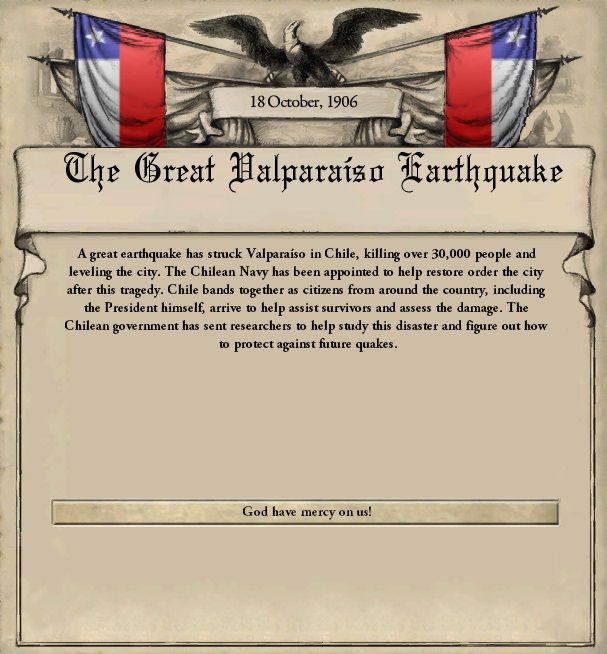
In late 1906 came the greatest natural disaster the Chilean nation had ever faced--the Great Valparaiso Earthquake of 1906. While many other major earthquakes had struck Chile before, none had ever hit an area as populated as the great city of Valparaiso. A magnitude 8.2 tremor, the earthquake created widespread devastation in the region, killing over 30,000 people in the densely populated area. The Chilean Navy was given control over the city to help restore order, while the government established the Seismological Service of Chile to help study and protect against future earthquakes. President Concha himself went to assist with disaster relief and survey the devastation, while the entire country sent aid to the area in some way. [7]
In the elections of 1907, the Socialists were widely expected to win. But a division in the Socialist Party occured between those who wanted to keep popular support and those who wanted a vibrant candidate who could really fire up the people. The latter faction rallied alongside Luís Emilio Recabarren, a 31 year old activist and writer, but Recabarren was viewed as too dangerous to the social order by many, including President Concha. While Recabarren would later take his place in the spotlight, the more moderate Zenón Torrealba Ilabaca, a young writer and labour activist, was chosen as the candidate for the time being, running against rivals Agustín Edwards MacClure from the Partido Nacional, the new conservative party that had emerged, and Emiliano Figueroa was chosen as candidate by the Liberal Alliance. Naturally, Torrealba won the election as predicted, and it was now his job to continue building Chile's strength, prestige, and wealth. With the recent discovery of oil in Patagonia, Chile was sure to play an even bigger role in the world.
[1] - AKA closing and deleting random capitalist factories in favour of a slightly more optimal approach to building up industry using the resources that I have.
[2] - Well, I needed some cool story behind my automobile factories, so maybe some noteworthy auto pioneers ended up immigrating to Chile instead of the United States? Heh.
[3] - I was half tempted to make Boeing Chilean too, but Chevy and Buick being Chilean is more than enough.
[4] - Capitalists expanded my glass factory to a ridiculous size, thus I need a ton of lead to produce said glass. I wish you could downsize a factory, but on the other hand I do produce something like 45% of the world's glass when my factory is fully supplied.
[5] - I don't think I've ever seen the Irish Civil War in the game.
[6] - Yep, Norway formed Scandinavia. Sweden and Denmark were also secondary powers, too.
[7] - I wrote this event myself, strongly based on the San Francisco Earthquake event.












